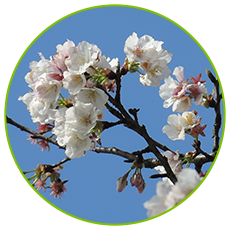Aug . 05, 2024 21:50 Back to list
Exploring Active Pear Pollen Contributions for Enhanced Pollination Solutions in Agriculture
The Significance of Active Pear Pollen for Pollination Companies
The agricultural sector plays a crucial role in global food production, and pollination is a vital process that significantly enhances the yield and quality of various crops. Among the many crops that rely on pollination, pears stand out for their economic and nutritional value. Understanding the role of active pear pollen and its applications in pollination companies can lead to better agricultural practices and improved crop management.
Pear trees, belonging to the genus Pyrus, are grown extensively in temperate regions worldwide. They produce fruits that are not only delicious but also rich in vitamins and minerals. However, to achieve optimal fruit set and production, these trees require effective pollination. This is where active pear pollen comes into play. Active pollen refers to pollen grains that are viable, capable of fertilizing ovules, and promoting successful fruit development.
Pollination companies have recognized the importance of efficiently delivering and managing active pear pollen to enhance pollination success rates. These companies play a key role in maintaining healthy ecosystems and ensuring the productivity of pear orchards. The distribution of active pollen can be facilitated through different methods, including bee pollination, wind, and artificial pollination techniques.
One of the most effective methods of ensuring successful pollination is through the use of honeybees. These pollinators are naturally attracted to pear blossoms, which means that having a strong beehive population in or near pear orchards can significantly increase the chances of pollen transfer. Pollination companies often collaborate with beekeepers to manage hives strategically placed in orchards, thereby optimizing pollination rates. This symbiotic relationship between bees and pear trees contributes to higher fruit yields and improved fruit quality.
active pear pollen for pollination companies

In addition to traditional methods, advancements in biotechnology have enabled the development of innovative solutions to enhance the effectiveness of active pear pollen. Research into the genetic profiles of different pear varieties has provided insights into pollen compatibility, allowing pollination companies to recommend the best pollination partners for specific pear types. This approach not only increases the likelihood of successful fertilization but also helps in producing hybrid varieties with desirable traits.
Moreover, the collection and storage of active pear pollen have become areas of focus for pollination companies. Properly collected and preserved pollen can be used to pollinate trees in conditions where natural pollinators are scarce, such as in greenhouse settings or during adverse weather conditions. The ability to store active pollen for later use can provide a critical advantage, especially in regions facing ecological challenges or where climate change impacts pollinator populations.
On a broader scale, awareness of the significance of active pear pollen aids in conservation efforts aimed at protecting pollinators. The decline in bee populations due to habitat loss, pesticide use, and disease has raised alarms across the agricultural sector. Pollination companies are increasingly becoming advocates for sustainable practices and policies that protect pollinator habitats, ensuring that both commercial agriculture and the environment can thrive.
In conclusion, active pear pollen is an essential component of successful pollination that significantly impacts the productivity of pear orchards. Pollination companies, through their various strategies and innovations, are at the forefront of enhancing the efficiency of this process. By harnessing the potential of active pollen and promoting biodiversity, these companies not only improve agricultural outcomes but also contribute to the sustainability of ecosystems. Understanding and prioritizing the role of active pear pollen will thus be crucial as we move towards a more resilient agricultural future.
-
Pollen Peach Tree for Pure Pollination and High-Quality Peach Pollen
NewsJul.30,2025
-
Premium Cherry Pollen for Pure Pollination & Different Types
NewsJul.30,2025
-
Artificial Pollination Solutions for Various Plant Pollen Types
NewsJul.29,2025
-
Artificial Pollination Solutions for All Plant Pollen Types
NewsJul.29,2025
-
Premium Plant Pollen for Pure Pollination & Pollen Block Solutions
NewsJul.29,2025
-
Artificial Pollination Solutions for Efficient Crop Yields
NewsJul.28,2025